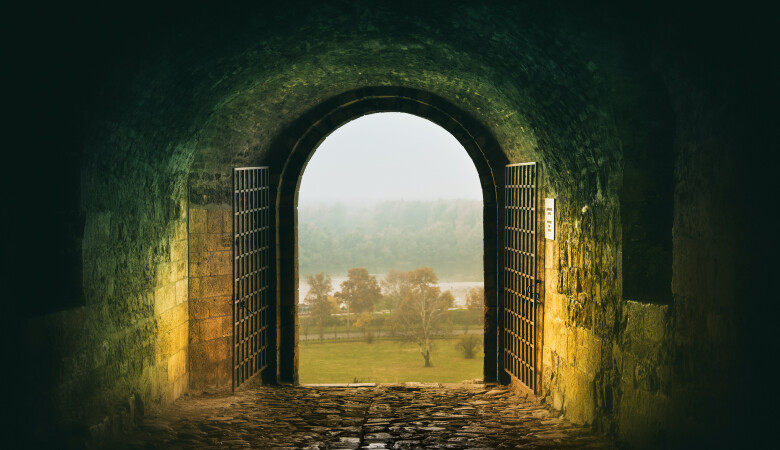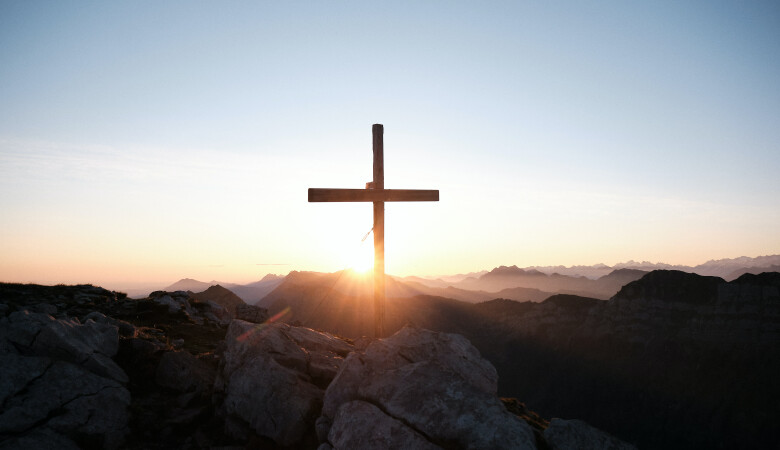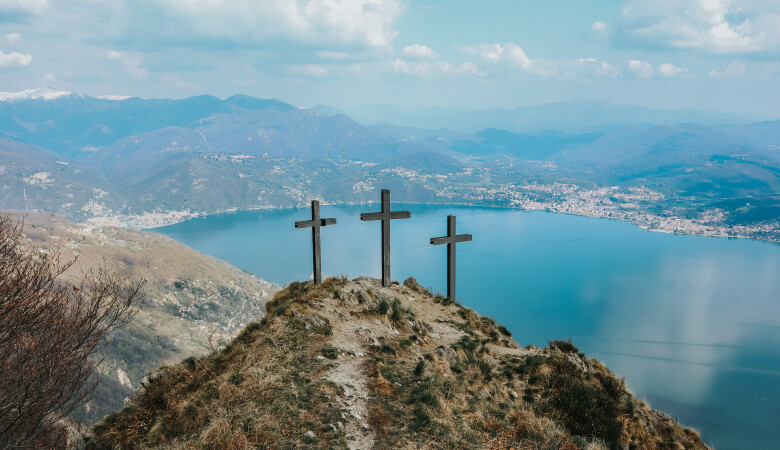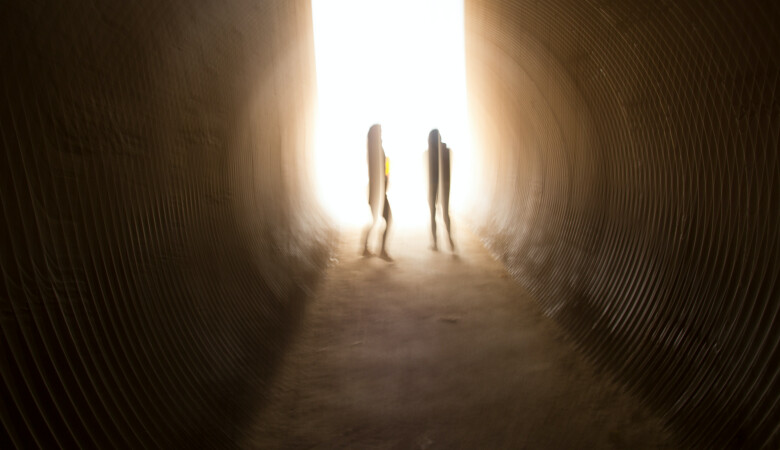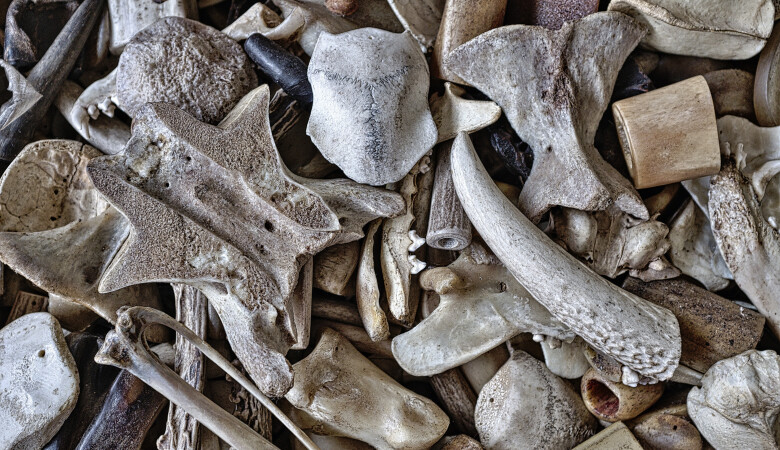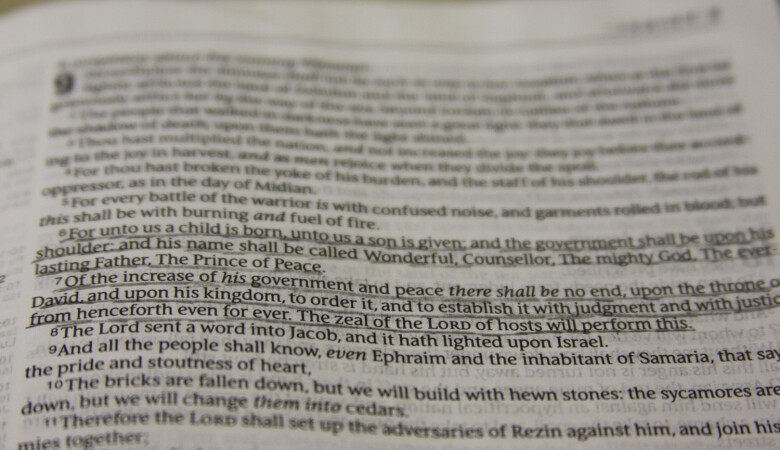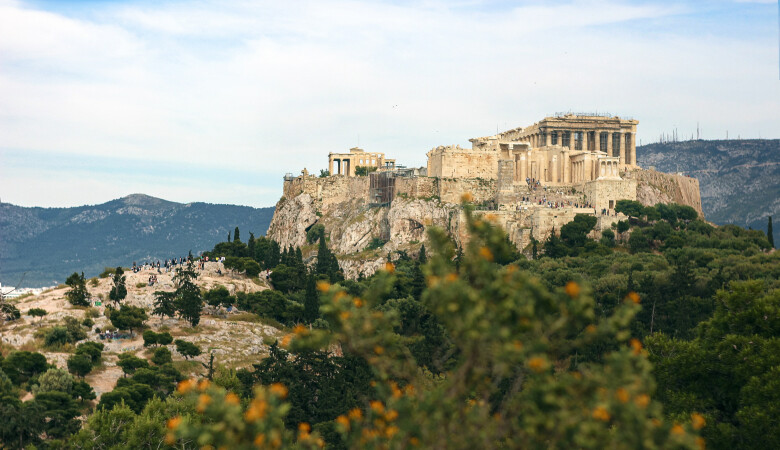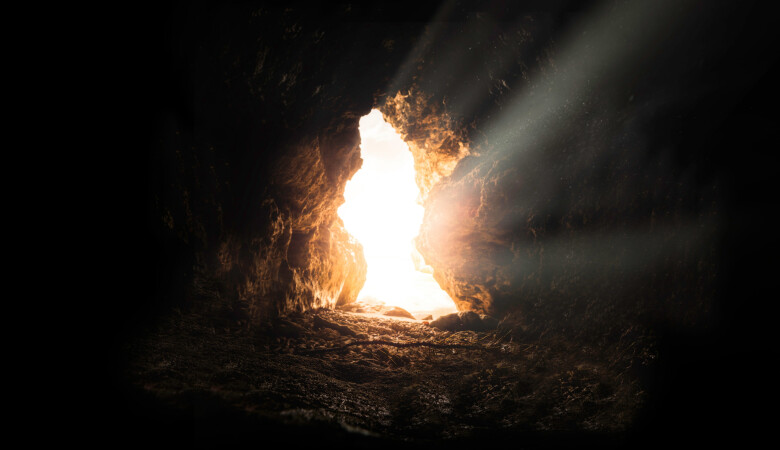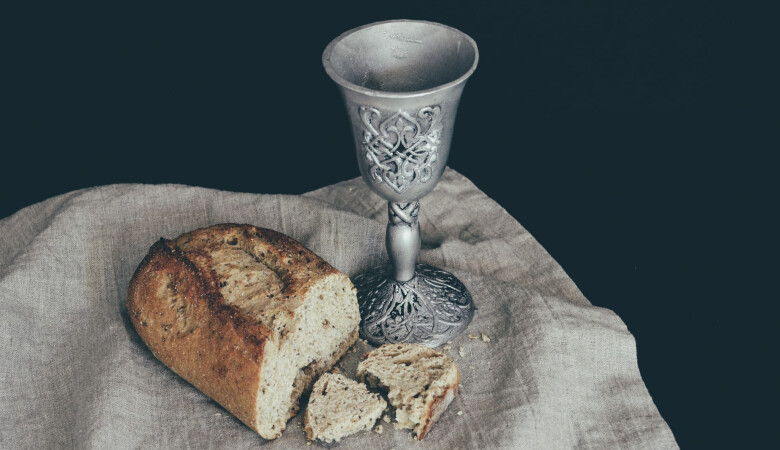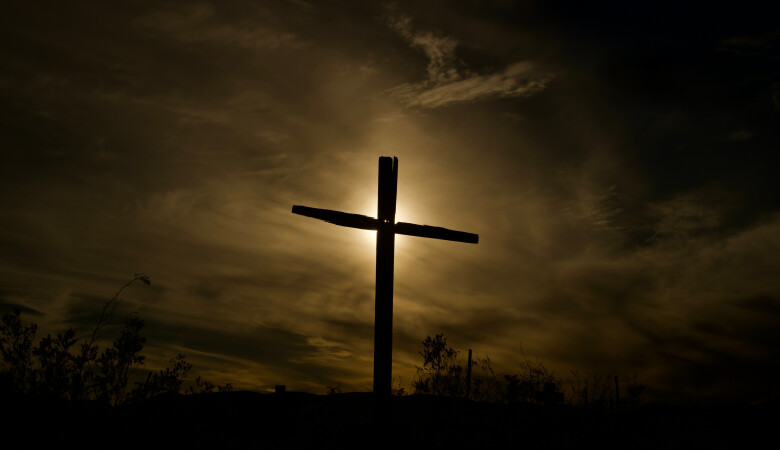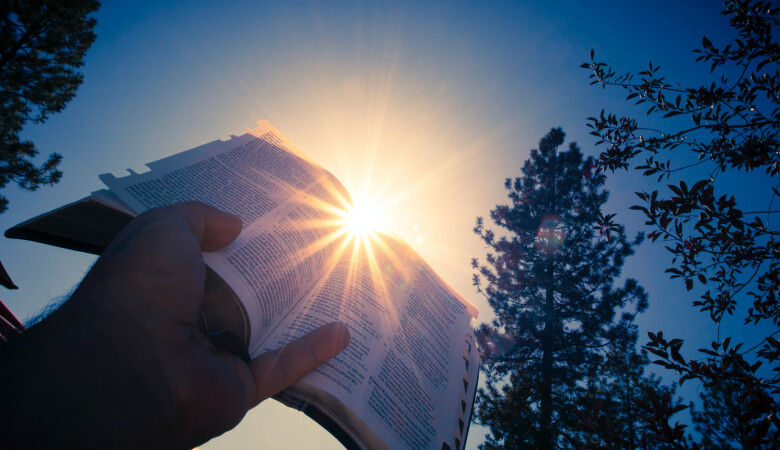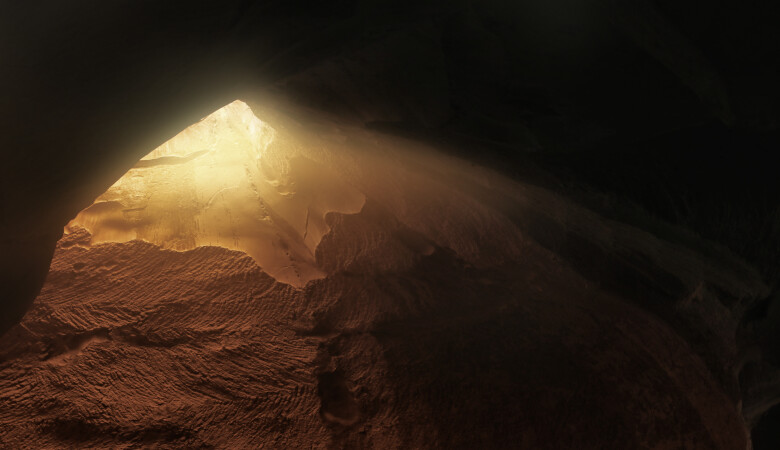Prophecies of the Resurrection
April 21, 2019 | Andy Davis
Bible Prophecy, Resurrection of Christ, Prophecy
I. Worldwide Fear of Death
Please open your bibles to Acts 2. We’re not going to do an exegetical walk through this text, but I want to say some things from that and then look at some other texts. There are always new things happening in this world of ours. I had not heard of this terrorist attack until this morning. And we're mindful of the fact that we live in this complex and diverse world and there are cultures very different from ours, language is very different than ours. People who answer the basic questions of life of what they will eat and how they will speak and what they will wear and how they will celebrate very differently than we do in our culture. We know that those lands have different heritages, different histories, different stories that they tell from their own past, they're very different than ours. So it's just an incredibly diverse world that we live in, but one thing unifies the human race, very much on my mind this morning, and that is fear of death, fear of death.
In 1973, Ernest Becker a Pulitzer Prize winning author wrote a book entitled "The Denial of Death." And the thesis of the book is that humanity is enslaved worldwide by a fear of dying. This man is not writing from a Christian perspective, but he said that what people do all over the world is deny, deny, deny, deny. And they find a lot of different ways to deny death and their fear of death. There are religious ways, narcotic ways, alcoholic ways, ways of success and labor and all of that, that distracts and diverts. There are cosmetic ways and surgical ways to deny that you're aging. There are all kinds of denials of death. Becker said the main thesis of his book is that the fear of death haunts the human being like nothing else. It is a main spring of human activity, activity designed largely to avoid the fatality of death to overcome it by denying in some way that it is the final destiny for man.
Now this author back then had no answer for this. He's just making an observation. But we have the answer, amen. We have the answer to death itself and to fear of death. And we praise God, and we're assembled today to celebrate that answer. Hebrews 2:14-15 says that by Christ's death, "he destroyed him who holds the power of death, that is the devil, and freed those who all their lives were held in slavery by their fear of death." What a triumphant passage that is. And if I'm not careful I'll just go over and preach on that one right now. There's so many celebrating passages that we can... But liberated from fear of death. All over the world, death is known as the final enemy. We understand this, funeral rituals, very diverse, different cultures, but they're there and they're powerful, and they involve immense lamentations and overwhelming grief. It's really very simply. You just live long enough in the world, you know this reality. A certain person who's important to you is alive, he has wrapped himself up in your life in some way, he's part of your life, you eat with him, you talk with him, you enjoy his company, laugh at his jokes, maybe, work together on some project. He's woven into the fabric of your life to some degree. But then suddenly one day something happens, and you never see him alive again in this world.
Maybe you see his dead body and maybe you don't, but one thing you know, that person who you remember is gone, and you never from that time on saw them again alive in this world. That's the experience of death, every culture, every nation, every tribe, subject to the same sorrow. And there's no refuge on this planet. No one's figured it out somewhere. It could be the distant mist covered valleys of Irian Jaya, there's no stone age tribe that's found some secret to the problem of death. Or even in the barren outreaches of the outback of Australia. It's not like there's some group there that has found the secret. Or you could go to the steel and glass high rises of Asia, Macau, or Hong Kong, and all of the teaming population there and there's not some back alley there where there's some specialist that is an oriental expert in herbs and has some interesting remedies that has delivered him and everyone that comes to his shop from death. Or you could go to the farmlands of the Ukraine where people are working hard, leading a wholesome life, and they're having year after year crops growing and they live that life of a Ukrainian wheat farmer, but there's no remedy, they die with no remedy.
We've got missionaries that work in the northern regions of the Laplanders in Finland, and they send back reports that they haven't discovered a secret to death, and the Gospel is needed there, because they die just like we do. And the same thing in the jungles of the Amazon, this unites the people there too. They have all kinds of flora and fauna there, they have all kinds of interesting species of spiders and tree frogs with special poisons in them and all kinds of other chemicals that we don't have here in Raleigh-Durham, but they haven't discovered a secret to death. Not even in Durham, North Carolina, the City of Medicine, where right near us within a few minutes drive there are pharmaceutical companies that are researching various aspects of pain and suffering and disease, but none of them has conquered death and they won't. So this brings us to this Easter celebration, this Resurrection Day celebration.
II. Jesus Christ Has Conquered Death
Jesus Christ has risen from the dead. He has conquered death. And He is the only one. I'm not denying that some people have been resuscitated by CPR or those electrical pallets that put electricity and revive a dead heart. I don't even deny that there are in the Bible accounts of miracles of Lazarus and others that were resuscitated to the same mortal life that we now experience, but Christ alone has been resurrected, never to die again. He's the only one. And He says in John 10:17-18, "The reason my Father loves me is that I lay down my life only to take it up again. No one takes my life from me. But I lay it down freely of my own accord. I have the authority to lay my life down and I have the authority to take it back up again. This command I received from my Father." Can you imagine anyone else making such a claim? There is no one else, no religious leader has made such a claim. I have absolute and power over life and death, my own. No one can kill me if I don't will to be killed, but I lay my life down freely and I have the power to take it back up again.
And again, Revelation 1:18, where Jesus appeared to the Apostle John, when he was in the island of Patmos in exile, and he says this, Jesus said to John, "I am the living one. I was dead and behold I am alive forever and ever, and I hold the key of death and Hades." So not only that, Jesus claims to unleash that power toward us, to give us the fruit of His resurrection victory. That's what makes all of this a celebration. He said in John 14:19. "Because I live, you also will live." Cherish that O dear brothers and sisters in Christ, "Because I live, you also will live." And again, John 11, Jesus said to Martha, "I am the resurrection and the life, he who believes in me will live even though he dies, and whoever lives and believes in me will never die." But we may ask how can we be certain of these things? I need to know how can I be certain that Christ is risen, and that he can give me that same resurrection victory? What would be the ground of my assurance, the ground of my certainty? How can we who live here in the Raleigh-Durham area, in this high tech era, this digital age, 21st century, how can we derive any kind of certainty or assurance of these things? We're skeptical people, we need to know how can we know that any of this is true?
And I say to you right now, the only way you will ever have certainty that Christ is risen from the dead, and that you also will be raised from the dead in the end is by faith in the Word of God. There is no other ground of assurance. Only by faith in the Word of God in the Scriptures will you have this certainty. If you don't have that faith in the word of God, you'll not have any certainty, either that Christ has been raised from the dead, or that you also could be raised from the dead. And the Bible is given to minister that faith to us, to feed us by faith. At the end of John's Gospel, in John 20:31, the Apostle John expressed why he had written his account of all the miracles, including the miracle of Christ's own resurrection. And said, "These are written that you may believe that Jesus is the Christ, the Son of God, and that by believing you may have life in His name." So by reading the words on the page, so you may have eternal life, you can access Christ's resurrection victory by simple faith in the Word of God.
III. “This is What is Written”
Now you may say there are many holy books. Wise men in the past, religious leaders have written things down, there are holy books a plenty. Seems like every religion has its own library, its own set of holy books. What is the difference between the Bible and the Hindu Scriptures, the Bhagavad Gita and other Hindu writings? Or the Muslim writing, the Quran, what's the difference between the Bible? Why should we believe the Bible as a holy book compared to the Quran? Or the Analects of Confucius or the Sutras of Buddhism or other holy books. But what is the difference? Well, there's two central differences in reference to the Bible. The first is predictive prophecy and the second is the testimony to the person and work of Jesus. No other scriptures have this combination of predictive prophecies culminating in this perfect historical figure, Jesus, that's the difference. And Jesus claimed to have power over death and He... It is said of Him by the eyewitness that He was physically raised from the dead.
But his central evidence was the prophecies that were written in the Old Testament, and that's what we're going to spend the rest of our time on, feeding our faith on the prophecies. What is written? The Jewish religion was founded on Scripture, the writings of Moses, and then of the Prophets, and they were assembled in what we call the Old Testament, the 39 books of the Old Testament, written centuries before Jesus was born. And the Jewish life and religion was based on the Scriptures. Moses said in Deuteronomy 32:47, concerning the words he had written there in The Five Books of Moses. "These are not just idle words for you, they are your life." But not only did Jewish Scripture contain the laws by which the Jewish nation was to live, it also contained God's predictions about the future and this is what makes the Bible unique, God's ability to predict the future, and then tell the prophets what was to come and they wrote it down. There's no other religion in the world that has this aspect of predictive prophecy of foretelling.
As he said in Isaiah 46:9-10, "I am God and there is no other, I am God and there is none like me. I make known the end from the beginning from ancient times what is still to come. And I say, my purpose will stand and I will accomplish all that I please." I love that, that's Isaiah 46:9-10. He says, I declare to you, I speak to you the end from the beginning. I tell you where we're going with all this. No other religion does. The Bhagavad Gita doesn't do it, the Quran doesn't do it, the Sutras don't do it, the Analects of Confucius don't do it, but Scripture does. And it was all asserted centuries before Jesus was born, the central event in human history was the birth, life, death, and resurrection of Jesus Christ, Jesus of Nazareth and it was all predicted centuries before He was born. And so Jesus, after He was raised from the dead, went to His own disciples there in the upper room, and this is what he said, Luke 24:44-48. "He said to them, this is what I told you while I was still with you. Everything must be fulfilled that is written about me in the Law of Moses, the prophets and the Psalms. Then He opened their minds, so they could understand the Scriptures."
He has the power to do that. He has the power, and I actually prayed for this yesterday that this would happen. In my mind, in your minds, in the minds of any unbelievers that might be here that were invited to come worship with us, that He would open your mind by the power of the Holy Spirit to understand the Scriptures. He has that power to do it. And Jesus opened their minds to understand the Scriptures. He told them this is what is written that Christ will suffer and rise from the dead on the third day and repentance and forgiveness of sins will be preached in His name to all nations beginning at Jerusalem. You are witnesses of these things. Well, that was just the beginning of a 40-day period in which Jesus trained His disciples in the Old Testament Scriptures. It was the greatest seminary in history.
Now, we're right near by Southeastern Seminary. I happen to teach there from time to time and I love it. It's one of the greatest seminaries in the world, it's nothing compared to that 40-day Seminary. And I think all of you students that are at Southeastern or any of you professors, you must assent to this, that you would rather sit at Jesus' feet than any of the esteemed faculty at Southeastern. But the topic of that 40-day seminary was very clear. This is what is written, this is what the prophets said would happened, so that their faith would rest certainly on the unchanging, the written Word of God, Acts 1:3. "After His suffering, Jesus showed Himself to these men and gave them many convincing proofs that He was alive. He appeared to them over a period of forty days, and spoke about the kingdom of God." Now, what Scriptures did He share with them? We don't know, but we do know how Peter and the other Apostles preached on the day of Pentecost. And we do know how the Apostle Paul wrote the Book of Romans and all of the Scriptures, the Old Testament Scriptures that he used to feed into them. Now, Paul was not there in that 40-day seminary, but he received a special tutoring session from the Holy Spirit. But it's the same Old Testament prophecies and scriptures.
IV. The Three Greatest Prophecies of Christ’s Resurrection
And I'm going to look with you this morning at the three greatest Old Testament prophecies of Christ's resurrection from the dead, and then the three greatest prophecies of our own resurrection from the dead, also from the Old Testament.
Psalm 16
And we begin with Psalm 16, this is the one that Peter quoted on the day of Pentecost. Now, if you look at Acts 2, we're going to just give a setting of this, this preaching that he did. The day of Pentecost was one of the three major festivals in the Jewish year. It was very close in time to the Passover just 40 days later, and so, pilgrims would come from all over the Greek speaking, the Roman world, the Jews from distant lands, and converts to Judaism would come to Jerusalem for the Passover and they would stay over for Pentecost. Thousands of Jews have made this journey and they would stay. Now, Christ was crucified, in fulfillment of the Passover symbolism was crucified on Passover Friday, He was buried just before the Sabbath, He was raised to life on the third day after the Sabbath, the first day of the week. Now for 40 days, Jesus met with the disciples to go over these Scriptures and He told them that at the end of that time, they should wait in Jerusalem for the gift that the Father would give them, the Holy Spirit who would be poured out on them from on high. And Jesus would ascend up to heaven and that He and the Father together would pour out the Holy Spirit.
Well, then Jesus did ascend and the church went back to the upper room, and they are waiting in the upper room for the gift that the Father was going to send. On the day of Pentecost, the gift was given. The Holy Spirit was poured out from on high, and they saw what seemed to be tongues of fire that separated and came to rest on each of them. And there's the sound of a violent tearing shredding wind, powerful like a hurricane level wind and they were all filled with the Holy Spirit and began to speak in other languages as the Spirit enabled them. And this crowd gathered of these pilgrims that were there for Pentecost, gathered around the house where they were staying, because they heard the sound of the wind. And Peter and the other Apostles went down and began to preach the Word of God to them. And what was amazing is that people heard all of them hearing one message, but they all could hear that one message in their own native languages. So God was doing something in their minds so that they heard, their eardrums would vibrate, but they would hear it in their own mother tongues.
And Peter preached this incredible message, and in verse 22, he talks about the life and the miracles of Jesus' ministry. He said in verse Acts 2:22, "Men of Israel, listen to this: Jesus of Nazareth was a man accredited by God to you by miracles, wonders and signs which God did among you, through him as you yourselves know." So many of those people were eyewitnesses to the miracles Jesus had done. But then Peter in the next verse lays the blame for their death right at their feet. He just lays it at their feet. They had seen Jesus' miracles, they knew who Jesus was. And God and handed Him over to them, the Jewish nation, for judgment.
Look at verse 23, "This man was handed over to you by God's set purpose and foreknowledge…" Stop right there. Let me just tell you, God had worked this whole thing out before the foundation of the world. There's no surprise, He didn't throw this thing together at the last minute. Not at all. He knew exactly what He was going to do with the problem of sin before He said, "Let there be light." And He made this whole plan, that's how He was able to speak through the prophets and let out a little bit of information to mark Jesus as the Messiah, the Savior of the world. But anyway, Peter said, "This man was handed over to you by God's set purpose and foreknowledge, and you, with the help of lawless men, wicked men, put Him to death by nailing Him to the cross."
"You did it." He was blaming the nation of Israel, along with the wicked men, the lawless men. Peter then declared very simply the greatest good news in human history. Look at Vverse 24, "But God raised Him from the dead, freeing Him from the agony of death because it was impossible for death to keep its hold on Him." Oh, don't you love those words? Can you just spend the rest of the day meditating on Acts 24? God raised Him from the dead, and freedom from the agony of death, why? Because death couldn't hold Him. It's impossible for death to keep hold of Jesus.
And then in verse 32 again, "God has raised this Jesus to life, and we are all witnesses of the fact." So the church was based on the power of eyewitness testimony, "We have seen Jesus alive." This is a matter of historical record. In space and time, we saw this individual, we touched Him, we ate with Him, we saw Him. Eyewitness.
But God knew that was a temporary... A temporary status. Very soon after that, the physical evidence of the resurrection would be gone, maybe later that same day it was gone. And the eyewitnesses themselves would be arrested, and would martyred, and even in John's case, die of old age in exile, and they'd be gone. And future generations would only have one thing, the Bible. Only have the scriptures. That's all we would have. And the eyewitness would write down what they saw, and so we have Matthew, Mark, Luke and John. And we have... But it's the same thing, the Scripture. And so only by the prophecies of Scripture can we believe that these things are true.
And so Peter there in his Pentecost message, turns to the solid foundation of predictive prophecy, and he turns to Psalm 16. It was the resurrection that had been predicted by King David a thousand years before Jesus was born. Look at verses 25-28, and that's chapter two. David said about Him, "I saw the Lord always before me because He is at my right hand, I will not be shaken. Therefore my heart is glad and my tongue rejoices. My body also will live in hope because you will not abandon me to the grave, nor will you let your holy one see decay. You have made known to me the path of life, you will fill me with joy in your presence."
So that's Psalm 16. The Jews had been reading it for 10 centuries. It was well known to them, they didn't understand the meaning. And they hadn't really thought it through. They hadn't put two and two together. Peter puts it all together for them. He said, "Look, David, King David wrote this... " He didn't say, a thousand years ago, but they knew, a long time ago. And he wrote these words speaking of the defeat of death and decay at the grave, a corruption, "You will not abandon me to the grave, nor will you let your holy one see decay." Think about it. Peter makes the point here, David could not have been speaking about himself, because David himself died and was buried and his body decayed. Look at verse 29, "Brothers, I can tell you confidently, [boldly, clearly] that the patriarch David died and was buried and his body is here to this day." It decayed. Remember the death of Lazarus and how the sisters were worried that if you took the stone away too early after four days, there would be a bad odor. You know what decay is all about, the corruption of bacteria, of worms eating the body, the defilement of the body because of sin. The body is sown in corruption and it's sown in dishonor. That's what decay is all about. But this prophecy says, "You will not abandon me to the grave, and you will not let me see decay." Well, Peter says... "He's not writing about himself because he died and decayed." But who's he writing about?
Look at what he says verse 30 and 31. "He was a prophet, and he knew that God had promised him on oath that He would place one of his descendants on His throne. Seeing what was ahead [I love those words], he spoke of the resurrection of the Christ, that he was not abandoned to the grave, nor did his body see decay." Just ponder that, what other religion? Seeing what was ahead, and we would add writing what he saw. It's predictive prophecy, he was not talking about himself, to declare in words and write it down and have those scriptures handed on from generation to generation of Jews. Have the scribes copy them, all of those Hebrew letters, copy them, the generation after generation, not think it through.
But the time had come for the veil to be removed from their minds and from ours, and say, "How could this be possible? How could someone die and see no decay?" And this is this testimony that is given in Scripture. It gives us the certainty that Christianity is true, and that Christ is risen from the dead. No other religion has these predictive prophecies. And these prophecies center on the most important issue in life, how we sinners can be forgiven by almighty God, and how we can live forever, and not die. That's what these predictions have to do.
Psalm 22
Well, what other prophecies do you think that Jesus showed to His church? I want to give you two others, Psalm 22 and you can turn and look there if you would, and also one other, Isaiah 53. First Psalm 22, again written by King David, so a thousand years before Jesus was born. Jesus quoted Psalm 22 from the cross. He said, "My God my God, why have you forsaken me?" Psalm 22:1.
I've often thought to myself that's Jesus' way of saying, "After all this is done, go back and read Psalm 22." But it also was a real sense of abandonment by God, with Him as our substitute. God made Him who had no sin, to be sin for us, so that in Him we might become the righteousness of God, that exchange at the cross, and so that sin, our sin was laid on Him, and God in some mysterious way, abandoned Jesus. And He says, "My God, my God. Why have you forsaken me?" Now, that... This Psalm breaks into two main sections, and Peter spoke about it, how the prophets spoke of the sufferings of the Christ and the glories that would follow. That's a good two-part outline to Psalm 22.
The sufferings of Christ come through the first section, the subsequent or following glories is in the second half of Psalm 22. Jump down with your eyes if you would at verses 14 through 18. This is a description of the physical process of crucifixion. It says there, "I am poured out like water and all my bones are out of joint. My heart has turned to wax, it is melted away within me. My strength is dried up like a potsherd, and my tongue sticks to the roof of my mouth. You lay me in the dust of death. Dogs have surrounded me, a band of evil men has encircled me, they have pierced my hands and my feet. I can count all my bones. People stare and gloat over me. They divide my garments among them and cast lots for my clothing."
Well, there are many details in this Psalm that were directly fulfilled in the crucifixion of Jesus Christ, including His garments being gambled over, but especially amazing are these words in verse 14 and verse 16. Verse 14, "I am poured out like water... " Dehydration. "And all of my bones are out of joint." Disfigurement. And then verse 16, "They have pierced my hands and my feet." So again, this was written a thousand years before Christ was crucified, but it was also written about three centuries before the Assyrians invented crucifixion. Nothing like this had happened to anybody in David's time. David's hands and feet were not pierced, his bones were not physically put out of joint, he wasn't dehydrated, he wasn't surrounded by a bunch of enemies, and his garments were not gambled for. Again, he was a prophet, and he spoke filled with the Holy Spirit, seeing what was ahead, he spoke of the crucifixion of the Christ.
But then at a certain point, the Psalm just turns and gets really happy. The Psalm just turns and gets really happy. The Psalm just turns and gets really celebratory. Look at Verses 22 through 25, "I will declare your name to my brothers in the congregation, I will praise you. You who fear the Lord, praise Him. All you descendants of Jacob honor Him. Revere Him all you descendants of Israel, for He has not despised or disdained the sufferings of the afflicted one. He has not hidden His face from him, but has listened to his cry for help. From you comes the theme of my praise in the great assembly. Before those who fear you, I will fulfill my vows." Suddenly, this suffering individual is celebrating a great deliverance in the great assembly.
Look at verses 29 through 31, "All the rich of the earth will feast and worship. All who go down to the dust will kneel before Him. Those who cannot keep themselves alive. Posterity will serve Him, future generations will be told about the Lord, they will proclaim His righteousness to a people yet unborn, for He has done it." This is resurrection, triumph, victory. Now, I was going to take the second half of Psalm 22 and put it in the second category, predictions of our own resurrection, but I kept it here.
"All of those who go down to the dust… who cannot keep themselves alive... " Do you know who that is? That's us. And on the basis of Christ's piercing, on the basis of His crushed status, and His death on the cross, we will live forever. This is the celebration of Psalm 22.
Isaiah 53
Now, Isaiah 53. Go and look at Isaiah 53, specifically verse 5 and 6. If Psalm 22 describes clearly how Christ died, Isaiah 53 describes very clearly why Christ died. Isaiah 53:5,6. Jesus' death was as a substitute for our sins. The centerpiece of Christianity was, or is substitutionary atonement.
Atonement literally means "at-one-ment." We were estranged from God, and through Christ's substitutionary death, through His suffering, we are made at one with God, reconciled with God. And no verse in the entire Bible, including the New Testament teaches substitutionary atonement as clearly as Isaiah 53:5, and also verse six. Look at it, "He was pierced for our transgressions. He was crushed for our iniquities. The punishment that brought us peace was upon Him, and by His wounds, we are healed. We all like sheep have gone astray. Each of us has turned to his own way, and the Lord has laid on Him the iniquity of us all." Written six-and-a-half to seven centuries before Jesus was born.
Why did He die? He died because we all like sheep have gone astray. Because we're sick with sin and we need healing. Because we're rebels. We have all turned away from God and followed our own path, and we deserve to be condemned to hell, we deserve to die eternally for our sins. And God sent His son, His only begotten son, Jesus, born of the virgin Mary, to come into the world, lead a sinless life under the law of Moses, never violated the law, but then die an atoning death, a substitutionary atoning death. Look at Verse five, look at the substitutionary language. "He was pierced for our transgressions. He was crushed for our iniquities. The punishment that brought us peace was upon Him, and by His wounds, we are healed." Again, notice in verse five the word pierced.
That's a very unique, interesting word. I picture a sharp implement, a sword, a needle, an awl, something like that going through with force, a membrane to the other side. That's what piercing is. And there are actually four prophecies in the Old Testament linked to the death of Jesus in which the word pierce is used. How do you explain it? But here it's not actually talking so much about the mechanism of Christ's death, but the purpose of it and the results. By His wounds we are healed. Now, you may ask healed from what? Let's just keep it in the context first. Healed from sin, healed from turning to our own way and doing what we want. Healed from rebellion. Now you say... I've heard some people say this means also physical healings involved. Oh yes, infinitely so, more than you can imagine, not like the health and wealth prosperity Gospel where you can be healed from a cold. I mean healed from everything, from every pain and suffering you can ever imagine in a resurrection body for eternity in heaven. That's the healing He's going to give you. And all of it blood-bought.
Verses 7 through 9 in Isaiah 53 also depict details of Christ's death and burial. "He was oppressed and afflicted, yet he did not open his mouth. He was led like a lamb to the slaughter and as a sheep before it shearers is silent, so he did not open his mouth. By oppression and judgment he was taken away, and who can speak of his descendants, for he was cut off from the land of the living [that means dead]. For the transgression of my people, he was stricken. He was assigned a grave with the wicked and was with the rich in his death."
You don't need a grave if you're not dead, so he died. But he was buried in a rich man's tomb. I've often thought about Joseph of Arimathea and Nicodemus who were hidden secret disciples of Jesus before He was a corpse. Think about this. Did the Romans do guilt by association? Oh, big time. Would they have wanted any of Jesus' secret followers, to arrest them and maybe execute them? Absolutely. Where then did Joseph and Nicodemus suddenly get their courage to ask for the dead body of Jesus and bury Him with lavish spices in Joseph's rich man's tomb. Where did that courage come from? I tell you, it came from the Holy Spirit.
Did it come from them reading the prophecies and saying, "You know Joseph, we need to go and fulfill this prophecy right here. We need to be certain that He's buried in a rich man's tomb." Nothing of the kind, they just suddenly, out of a love for Jesus and a sorrow at His death, took up courage and got the body and buried it in a rich man's tomb. But Isaiah predicted it seven centuries before Jesus was born. Look at the end, verse 10 and 11, "Though the Lord makes his life a guilt offering, he will see his offspring and prolong his days." Oh, He has a future, a history after being buried. Yes, He does.
"The will of the Lord will prosper in His hands." Praise God. Verse 11, "After the suffering of his soul, he will see the light of life and be satisfied, and by his knowledge my righteous servant will justify many, and he will bear their iniquities." He was buried, and after the burial, He will see light. He will see His descendants, and He will rejoice. Resurrection. Well, those are the three greatest predictions of Christ's death and resurrection.
V. The Three Greatest Prophecies of Our Resurrection
What about our own? Do you see that this day would not be a happy day for us, if Christ is risen, and ascended and glorified, and we all end up in hell? It's because Christ is willing to take His resurrection victory and give it to us. He's the champion. He wins the championship and He gives all the plunder and the booty and the gold medals, and all of that to us. He already has all that, He's going to be seated at the right hand of almighty God. He did it for us, and it was written down and predicted centuries before He was born.
Isaiah 25-26
Turn, if you would to Isaiah 25 and 26. We'll start at 25. On Maundy Thursday, I talked about this Isaiah 25:6-8. I'm not going to walk through it carefully, but just read it. Isaiah 25:6-8: "On this mountain, the Lord Almighty will prepare a feast of rich food for all peoples, a banquet of aged wine, the best of meats and the finest of wines. On this mountain, he will destroy the shroud that unfolds all peoples, the sheet that covers all nations. He will swallow up death forever. The sovereign Lord will wipe away the tears from all faces. He will remove the disgrace of his people from all the earth, the Lord has spoken." There is a rich feast coming, a banquet, and what's amazing about this banquet so lavishly described is that it really comes down to one thing: The destruction of death.
He's going to destroy the shroud that's wrapped around the corpse, the sheet that unfolds all nations. He's going to swallow up death forever and we are going to celebrate.
Now look to the next chapter, Isaiah 26:19. "But your dead will live. Their bodies will rise. You who dwell in the dust, wake up and shout for joy. Your dew is like the dew of the morning. The earth will give birth to her dead." A clear prediction of not Jesus' resurrection here, but the resurrection of those who went down to the dust, whose bodies did decay, who were buried, but the earth is going to give birth to her dead. You have to put the two together. By Christ's resurrection victory, death has been destroyed and the earth will give birth to her dead.
Job 19:25-27
Turn to Job 19:25-27. Job was a godly man who suffered greatly, the loss of all his possessions and his children in a single day, and then the loss of his health, but these immense sufferings could not shake his trust in God. So look at Job 19:25-27. There he wrote, "I know that my redeemer lives and that in the end, he will stand upon the earth, and after my skin has been destroyed, yet in my flesh I will see God. I myself will see him with my own eyes, I and not another. How my heart yearns within me!" So after the worms have eaten me up and after my body has been destroyed, because my redeemer lives, I in my own flesh will see my God. Job 19:25-27.
Daniel 12:2-3
The final one is Daniel 12, Verse 2 and 3. Turn to Daniel 12:2,3. Prophet Daniel lived six centuries before Jesus was born. God gave him amazing visions of the end of the world, and the greatest promise of all concerned the bodily resurrection of the dead from the grave into eternal glory. Daniel 12:2-3, "Multitudes who sleep in the dust of the earth will awake, some to everlasting life, others to shame and everlasting contempt." That's the doctrine of the general resurrection. But then Verse 3, "Those who are wise will shine like the brightness of the heavens and those who lead many to righteousness like the stars forever." Now, that's a glorious resurrection, resurrection glory. Multitudes who sleep in the dust of the earth will arise and shine with radiant glory.
Look again at Verse 13. Daniel as usual was overwhelmed by the vision, didn't have any idea what he was talking about, was just told to write it down and not worry about it, and then was given this specific prediction concerning himself. Look at Verse 13. "As for you," this is an angel speaking to Daniel, "go your way till the end. You will rest," that means you will die, "and then at the end of the days, you will rise to receive your allotted inheritance." How powerful is that? So, this morning, we've looked at clear predictions of the death and resurrection of Jesus and clear predictions of the general resurrection of the righteous into bodies that will shine and live forever.
VI. Applications
What application can we take from this? Well, you don't have to turn there, but go back in your minds to the end of Peter's Pentecost sermon. After you get done preaching, it says that the people who heard him were cut to the heart or pierced in their hearts, and said to Peter and the other apostles, "Brothers, what shall we do?" And Peter and the other apostles replied, "Repent from your sins and be baptized for the forgiveness of your sins, and you will receive the gift of the Holy Spirit." He didn't say it, but he could have added, "And you will be raised in a glorious resurrection body at the end of the world." So simply, all of you who hear me should believe in Jesus for the forgiveness of your sins. If you've never done that before, Welcome. I'm glad that you're here. I'm glad that somebody invited you. Maybe you just decided to come to church because it's Easter. If you did not come in here knowing that your sins were forgiven by faith in Christ, this is the time to cross over from death to life spiritually, and Jesus' resurrection victory will be yours for all eternity.
Peter said it plainly, "Repent and be baptized in the name of Jesus for the forgiveness of your sins and you will receive the gift of the Holy Spirit." For those of you that are Christians, let me just say this to you. Be healed emotionally. You need emotional therapy. You're like, "Well, how do you know that?" I just know because I need it and I know all of you. It's like, "Yes, another Easter. We need to sing and celebrate and the music needs to be a little bit louder and a little bit faster tempo, and so we'll do that, and the preaching needs to hit a certain pitch, and all that," look, set all that aside. That'll all be gone within, by the afternoon. Do you realize that almost all of Jesus' disciples and apostles emotionally reacted the wrong way to the news of the resurrection? They're all off. The two disciples on the road to Emmaus were just straight depressed. And furthermore, some of our women have told us that the tomb is empty and we can't make hide nor hair of it. They don't know what's going on. And Jesus said, "How foolish you are and how slow of heart to believe all that the prophets have spoken to you." And He healed them by the ministry of the word. They didn't know who He was. His identity was hidden from them. But at the time... By the time He got done, their hearts were burning within them based on the scriptures.
Think about Peter, Peter sees the actual evidence for the resurrection, and he went away puzzled. Peter. John saw and believed. Peter went away wondering. What about Mary there at the empty tomb and she's weeping and she sees the physical evidence for the resurrection and she's just weeping and crying? And the angel says, "Woman, why are you weeping?" "They've taken my Lord away and they put him somewhere and I don't know where he is and I want to get him and bring him back and bury him. I want to finish his burial." That's what she was about. Focused, focused individual. Alright? "I got to finish his burial." "No, you don't." And then Jesus appears and she thinks he's the gardener. It's one of the great moments in redemptive history, Mary thinking Jesus, the resurrected Jesus, is the gardener.
"Sir, if you have taken him, tell me where he is and I'll get him and bring him back." Really? What's the plan, Mary? Then Jesus just spoke out of tenderness, and said, "Mary," and she immediately, with the hearing of her name, fell at His feet and worshipped Him. So I don't know what your emotional state was when you came in here. Maybe it was fine. Maybe you're just filled with joy, but I know this: Our joy is under constant assault by the world, the flesh and the devil. And my job here isn't to heat you up to a fever pitch and send you out like a coach at halftime and you're losing by three touchdowns. That's not my job. My job is to preach the Word and say you have a lasting permanent basis for unchanging joy, and you may be sometime sorrowful, but you can be always rejoicing based on these facts. So emotional therapy.
Thirdly, let's put sin to death by the Spirit. We have the power to live in Christ a resurrected life. His resurrection physically gives us proof that we can live by the Spirit a resurrected life spiritually in holiness. Put sin to death this week by the power of the Spirit. The things that depress me the most in my life are my own sins. We don't need to sin ever again. We are set free from sin. Think like this. It was impossible for death to keep its hold on Jesus. It was also impossible for Him to sin. Some day, it's going to be impossible for you to sin. The more you live like that now, the more joyful you will be and the more fruitful you will be. And finally, let's go out this week as messengers. The staff went out on Monday and were handing out invites to Easter. Two-thirds of the people we talked to didn't know it was Easter. I was excited about that. You know why? It means we can do the same thing next week.
Don't tell them it's Easter, but you can tell them we'll be celebrating the resurrection. We'll do that for sure. They don't know. We are becoming an increasingly post-Christian, pagan society. People don't know these things. They don't automatically go to church on Easter anymore. So let's go out and tell them this week that Christ has risen and that they in Him can live forever. Close with me in prayer.





